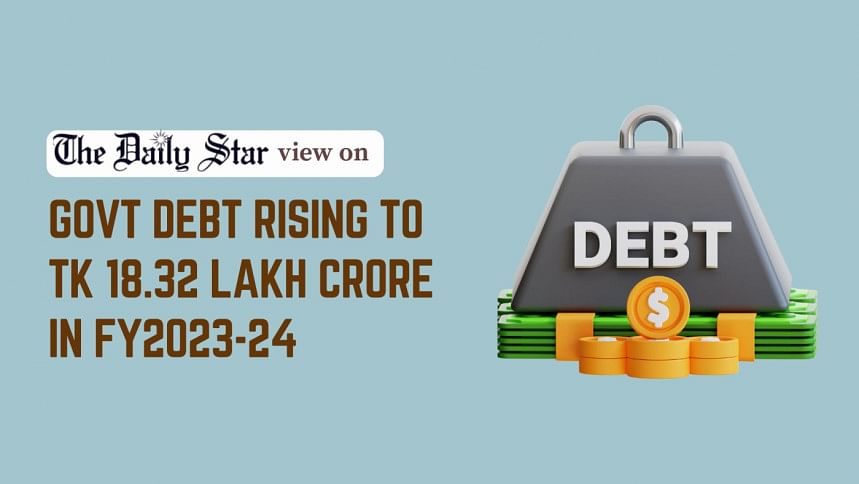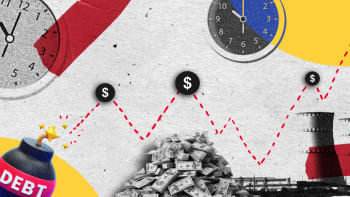A looming fiscal crisis for Bangladesh

The government debt increasing by 13.3 percent last fiscal year to a record Tk 18.3 lakh crore is concerning, particularly given its low revenue mobilisation. Here, it has to be said that the former Awami League government is primarily at fault. When it returned to power in 2009, the country's total debt was just $33.66 billion. At the time of its ousting from power on August 5, 2024, the AL government left behind a national burden of $156 billion in local and foreign loans. Aside from wasteful expenditure and mammoth corruption, its failure to improve revenue growth means that Bangladesh's debt-GDP ratio now stands at 36.3 percent. While this is still within the safe limit per the IMF standards, it remains concerning when considered alongside the country's weak revenue earnings and dwindling dollar reserves, economists warn.
The most pressing issue now is the liquidity shortage in both local and foreign currencies. On the one hand, revenue collection remains weak, while interest payments have risen sharply. On the other hand, Bangladesh is receiving fewer foreign loans, creating challenges for meeting interest payments and settling outstanding bills. The recently submitted white paper on the economy already highlighted these risks. It also projected that by the end of June 2025, the total debt could rise to 41.3 percent of GDP.
According to the debt bulletin report, government expenditure on interest payments increased by 21 percent in the last fiscal year, reaching Tk 1.1 lakh crore, which accounts for one-sixth of the national budget. This indicates that a significant portion of the government's expenses is already allocated to paying interest on its debt, thereby reducing its fiscal flexibility. This constraint may worsen in the future as tighter monetary policies, necessitated by high inflation, drive up interest rates on treasury bills and bonds.
Meanwhile, Bangladesh's per capita foreign debt has more than doubled over the past eight years. The government may be compelled to take on more loans in order to clear foreign arrears to ensure the continued supply of power and fertilisers. While this approach may offer a short-term solution, the government must ultimately prioritise increasing revenue collection, as it is the only sustainable long-term solution to the debt servicing challenge. In this context, it is disappointing that the interim government has recently increased VAT and supplementary duties on nearly 100 goods and services, despite concerns that these measures could further fuel inflation.
Instead, the government should focus on addressing tax evasion, which remains a significant issue. The previous government also erred in neglecting this problem and relying on indirect taxes, which are inherently regressive. We urge the interim government to reconsider its policy approach and emphasise progressive taxation as a means to manage the growing debt burden.

 For all latest news, follow The Daily Star's Google News channel.
For all latest news, follow The Daily Star's Google News channel. 





Comments